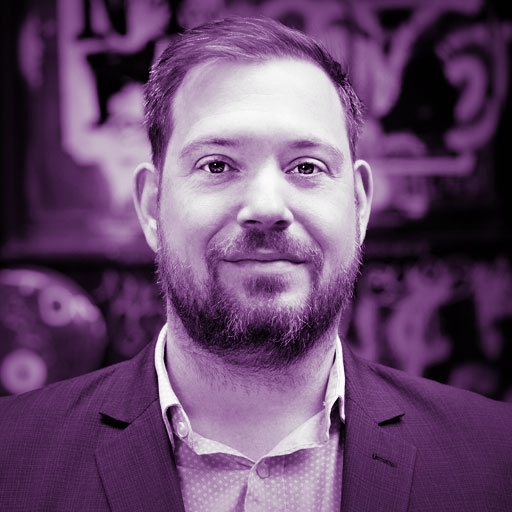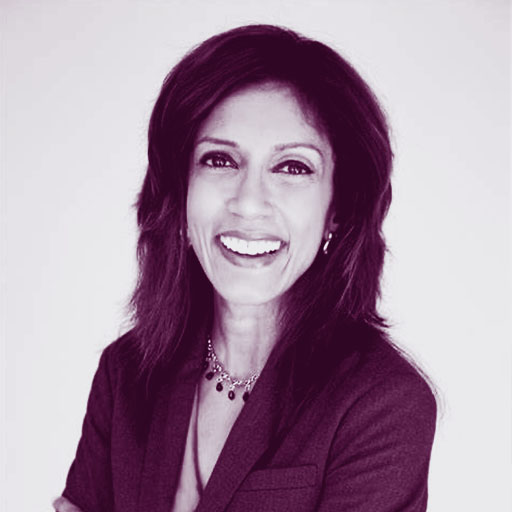Episode 153: Bundle of Joy via a Gestational Surrogate
This episode features a guest who is not new to this podcast, or to Progyny at all. You may remember her from Episode 34: Transforming Pain into Bundles of Joy, where she described turning her experience with infertility into the Bundles of Joy Fund which has now distributed a million dollars in grant money to those struggling with infertility.
Today Samantha Busch joins us to discuss her most recent step on her family building journey, gestational surrogacy. She shares what’s been happening over the last few years, what the transition was like to carrying her own child, to how she found someone to carry her second. We also hear from Dr. Dorette Noorhasan, a reproductive endocrinologist and fertility expert from CCRM Dallas Fort Worth. Dr. Noorhasan describes both her personal and professional experience with finding a gestational carrier, and how being the patient has altered her experience as the provider.
Guests: Samantha Busch, Bundle of Joy Foundation, and Dr. Dorette Noorhasan, CCRM Dallas
Host: Dan Bulger, Progyny
For more information, visit Progyny’s Podcast page and Progyny’s Education page for more resources. Be sure to follow us on Instagram, @ThisisInfertilityPodcast and use the #ThisisInfertility. Have a question, comment, or want to share your story? Email us at thisisinfertility@progyny.com.
Here are some highlights from this episode:
When Someone Else is Carrying
00:45 – 7:00
Dan Bulger: Today’s guest is Samantha Busch. You might know Samantha, she’s an author, founder of Bundles of Joy, an organization that gives grants to people for fertility treatment. She’s a television personality. You might also know her husband, Kyle Busch, the famed NASCAR champion. We featured Samantha on our podcast before. In that episode, she shared her experiences with infertility, pregnancy loss, and she shared how she eventually found her way to motherhood. When trying to expand their family, they came to the realization that this time Samantha wasn’t going to be able to carry and they needed a gestational carrier. It’s no small thing for a woman to come to terms with the idea that they won’t be the one to carry their child.
Samantha Busch: Having that ripped away from me was really hard. Because, you know, I think there were things that I took for granted, like being pregnant that I just assumed I’d get to do it again. And so that was hard. What was really difficult was just the whole process to find a carrier.
Dan Bulger: We’re proud to welcome Dr. Dorette Noorhasan, a reproductive endocrinologist and fertility expert from CCRM Dallas Fort Worth. Dr. Noorhasan is not only an expert when it comes to gestational carriers as a fertility doctor, but she’s also an expert because she herself utilized a carrier when she and her husband were trying to conceive.
Dr. Dorette Noorhasan: Traditional surrogacy is when the embryo, or the fetus that’s being carried, the egg that is used to create that fetus is biologically related to the woman that is carrying the pregnancy. Traditional surrogacy is rarely if ever done in the United States any longer. Now, we do gestational surrogacy where the woman carrying the pregnancy is not biologically related to the pregnancy. And therefore, embryos are created, whether it’s with the eggs of an intended mother or donor eggs. And then those embryos that are created from these eggs are then transferred to another woman, the surrogate and she’s a gestational surrogate. Women who should consider surrogacy or gestational surrogacy are women with prior medical or surgical history that would preclude them from carrying a pregnancy themselves.
Finding the Perfect Match
09:42 – 19:21
Samantha Busch: We spent days making this like perfect profile and the pictures and all that stuff. And we just thought it was you know, like match.com like, Okay, now we’re going to be matched up with these people and it was going to be easy to find that match and what people getting into finding carrier don’t know is that it’s many months, if not years out there. It’s not a huge pool of, you know, candidates and that wait time when you want something so bad and you’ve already been trying for so long, was really hard for us. And so, we went out on our own, just kind of talking to women in the community that were doulas or midwives and just saying like, hey, if you’ve ever, you know, met somebody that’s been a gestational carrier before, can you let us know? Like we’re looking and just really kind of put ourselves out there that this was our next step.
Dr. Dorette Noorhasan: The reality is the surrogacy process is not an easy process. And I will tell you this, I am a fertility doctor. I have been practicing infertility every single day for decades. And I thought I knew everything about surrogacy. And the reality is I only understood the medical aspect, I didn’t understand the legal aspect, the psychosocial aspect, any of that I didn’t really, I didn’t have a good grasp of what that was like, until I actually went through as an intended parent. You really want to find someone that you click with where that person has the same views as you do on pregnancy. For example, I will tell you, we interviewed probably about a dozen women before we found the person that was right for us. And there was even one of the surrogates that we interviewed; she didn’t think we were the right fit for her either. And so, finding the right person is very important. But once we found the right person. For us, it was very easy after that.
Samantha Busch: We met with some women, and it just didn’t work out. One was so amazing and just loved her to pieces. And unfortunately, it was an issue with a fallopian tube. You know, different things like that. And so it was like every time that we thought we had a match, and it didn’t come through it, it felt like another failed round and emotionally it was really hard. So, we were going through the process, I had met with a woman. And we were really getting further along in conversations. And then she decided just where she was with her children in her life that she was like, I don’t actually know if like, right now I can take on being pregnant. And so, a few hours after we got that devastating blow, our GC who we proceeded with, literally sent me a DM and she was like, “I have followed your story for years. You know, I’m local, I have written this message and deleted it to you 1000 times.” We ended up meeting and she was absolutely wonderful. And then our families met, and our son met her kids. And it was just this very natural. It was just a set.
Dan Bulger: Those are two very different approaches to finding a carrier that both went pretty similarly, some pain, some frustration and heartache. But ultimately a match was made. So, the question is, what should people be looking for when searching for a carrier?
Dr. Dorette Noorhasan: You have to trust them and let go and allow them to carry the pregnancy and do so without feeling the need to control every aspect of what they do day to day because this is another human being, and they need to live their lives too.
Samantha Busch: I saw her when it was convenient. And I texted with her often, but I also didn’t want to invade and interrupt her schedule and time with her family and friends. So that was you know, we really did find a good balance of seeing each other in person versus like saying we read text almost every day. But you know, having that respect and understanding that she has two young kids as well and a family.
Shared Truths
21:40 – 33:11
Dan Bulger: I think it’s so wonderful that Samantha is so open about her experiences. When we speak about these things, we can give people a lot of power. And we can clear up myths and misconceptions along the way, which is why I’m so excited to share this next story from Samantha, it involves the language we use to discuss this kind of thing. And I think it’s something we all need to be a bit more mindful of.
Samantha Busch: We had been through a different facility, and they kept referring to our GC as mom. “So, Mom, how are you feeling? Mom?” “How’s baby mom?” And even our GC, her and I were on the same page the whole time. And I was like, no, no, I’m mom. And she would be like, “No, no, no, I’m temporary housing like I am the carrier. I’m not mom.” We had a person in the medical field who’s just like, oh, it’s no big deal. And I have connected with a lot of women who agree it is a big deal.
Dr. Dorette Noorhasan: I think it’s great that she’s sharing her story publicly. And that’s very important when someone who is a public figure shares their story. It makes people realize that infertility can affect anyone. And it’s really important that public figures share their story because then people realize anyone can be affected by infertility and we all can struggle with very similar diseases. And there’s hope for all of us.
Samantha Busch: I wanted to write this just really raw and candid account of what you go through physically, emotionally, as, you know, as a woman, as a couple. And, really talk about the kind of nitty gritty, ugly truth behind all of it, so that when other couples are reading it, they feel heard and understood and related, and I think, you know, a big part of that was discussing how it affects your marriage. It’s a very high pressure, high emotional situation. And so, a lot of what we went through was what a lot of other couples went through. Infertility kind of consumes your entire relationship, you know, everything from what you talk about to your schedules to your sex life, like it all gets wrapped by this one overriding thought of like, we need to be pregnant.
There were a lot of times in our journey that I was like, Why? Why am I still putting my body through this? You know, am I strong enough to get through this trial? Am I strong enough to face this? And I will say I am so happy for couples that are getting ready to face infertility, that they have the resources that are out there today that I feel like have evolved over the years. Because a lot of times, it was literally complete strangers in you know, support groups or apps or just, you know, Instagram connections that kind of motivated you to keep trying or keep speaking out about something. And so that’s just really exciting.

Host
Dan has been in the healthcare industry for the past ten plus years as a multimedia content producer. Better known as ‘Video Dan’ he has interviewed numerous doctors, patients and other experts in the world of fertility. He’s also the producer for this podcast, This is Infertility and the producer behind the Progyny YouTube Channel which features interviews with dozens of the nation’s leading fertility specialists. On a personal note Dan’s parents started fostering kids when he was four years old, and he considers himself a proud older brother to over 100 foster children.

Guest
Samantha Busch is a wife, mother, author, entrepreneur, lifestyle blogger, IVF advocate, philanthropist and co-owner of a professional race team. As a successful “boss babe”, Samantha is driven to empower women of all ages and backgrounds to live their best lives – with confidence and poise. Through her lifestyle blog and social platforms, she discusses a variety of topics across food, fitness, beauty, as well as engages in an open dialogue on her IVF journey. From co-owning a race team to running Avanti the Label to advocating for infertility education and awareness through the Samantha and Kyle Busch Bundle of Joy Fund, Samantha’s followers will always get an honest look into her life and its many facets as she strives to empower women.

Guest
Dr. Dorette Noorhasan is the Medical Director and Co-Founder of CCRM Dallas – Fort Worth. She is board certified as a Reproductive Endocrinologist and Infertility Specialist.
Dr. Noorhasan grew up in the United States Virgin Islands. She graduated summa cum laude from the University of the Virgin Islands and attended medical school at Boston University School of Medicine. While in medical school, Dr. Noorhasan did medical missions to Guatemala and Mexico. She is conversant in Spanish. After medical school, she completed her Obstetrics and Gynecology residency at the University of Texas, Houston, and Reproductive Endocrinology and Infertility fellowship at New Jersey Medical School.
She has published in numerous journals including Fertility and Sterility, Human Reproduction, Women’s Health Issues, Journal of Pediatrics, and Obstetrics and Gynecology International. Additionally, she wrote the chapter entitled “Does Psychiatric Diagnosis Affect Fertility Outcomes?” in the book called Women’s Reproductive Mental Health Across the Lifespan. She is the author of the books – Miracle Baby: A Fertility Doctor’s Fight for Motherhood and The Fertility Manual: Reproductive Options for your Family – drdorettenoorhasan.com. Dr. Noorhasan truly understands what it is like to walk in her patient’s shoes. She has personally done five cycles of in vitro fertilization to ultimately create an embryo that was eventually transferred to a surrogate. Because of her surrogate’s kindness, Dr. Noorhasan has also been able to experience parenthood, something she once thought was unattainable.
Dr. Noorhasan truly believes that the healthier you are, the healthier your eggs and sperm will be, the healthier the pregnancy. She has completed extra hours of education by the American College of Lifestyle Medicine so she can educate her patients about healthy lifestyles. Dr. Noorhasan has received numerous awards including D Magazine Top Doctors in both Dallas and Collin counties, Texas Monthly Top Doctors, Mom-Approved Doctors by DFW Child Magazine, Collin County Top Doctors, 2018, 2019, 2020, 2021, 2022, & 2023 Castle Connolly Top Doctors and Castle Connolly Exceptional Women in Medicine. Dr. Noorhasan believes in providing individualized compassionate care to her patients. Her favorite part of her job is seeing her patients’ faces light up when they present for their first obstetrical ultrasound.



